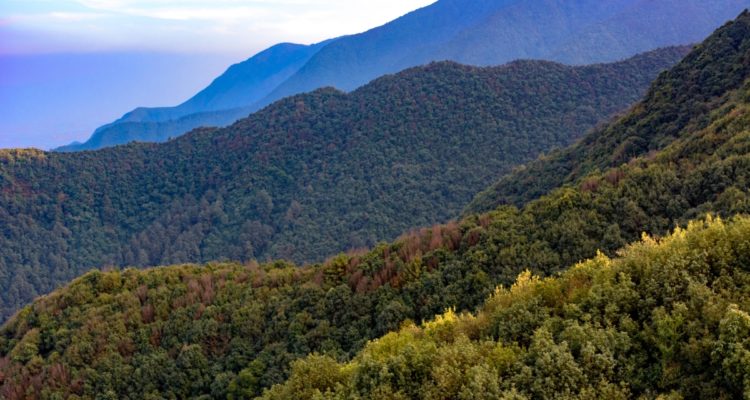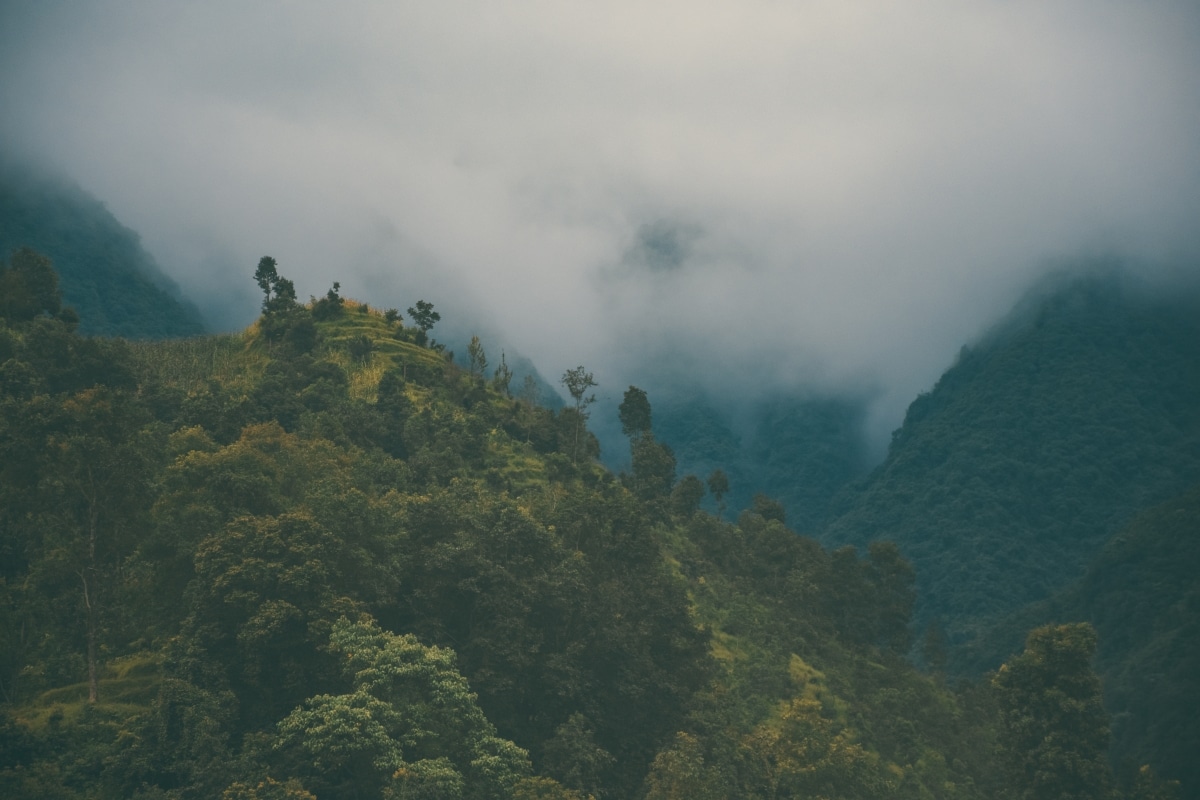Forests, the salient natural resources, cover about 31% of land on earth, providing essential organic infrastructure for the survival of living beings. There is a catchphrase in Nepali which speaks of our most basic requirements for survival i.e. “Gaas, baas ra kapaas” meaning food, shelter, and clothing respectively. We derive these basic needs almost entirely from the forests. From the food we eat to the homes we live in and the clothes we wear, we depend completely on forests. There are many advantages of forests in human life that makes our life easier.
In appreciation of the crucial role that forests play in our lives, every year we celebrate the International Day of Forests on 21st March, promoting and raising awareness on the importance of forests. So in admiration of the values provided by the forest, here are 11 advantages of forests that we should always be thankful for:
-
Clean air
Forests are the only source of clean and pure air. No air purifier or air conditioner does even the half work of purifying the air, as is done by the forests. Trees absorb the harmful gases present in the air such as sulfur dioxide, carbon monoxide and trap them in the leaves and its bark, and release oxygen. A mature leafy tree is estimated to produce as much oxygen in a season as 10 people inhale in a year.
-
Clean water
It is often said that healthy forests act as a filter to keep pollution out of the water. Trees help in filtering out heavy metals and nitrates through their roots from the water before it makes its way to the water sources and further in the water cycle. People in the remote areas of the country with a decent forest area, still consume water directly from the rivers, as forests act as a natural water treatment plant.
-
Recreation and Relaxation
Our day to day hustle in life, be it school or work, can be extremely stressful, which makes us lose peace of our mind. It has been confirmed that spending time in the forest has a positive influence on our mind and body. The cool and calming breeze, the chirping and harmonious songs of the birds, sighting of the beautiful creatures, relaxes our body and comforts our soul. Forests have a healing outturn to our mind.
-
Home to biodiversity
Can we imagine living our life without our home? No, right! Just like our homes, the forests provide shelter to 80% of the world’s terrestrial biodiversity which includes plant, animals, fungi, bacteria and other micro-organisms. Forests provide a home to live, sustain and nurture their growth. No forests, no homes for the biodiversity, thus their number starts declining, which is exactly what is happening in today’s world.
-
Regulates rainfall
Forests play a vital role in the rainfall regulation, by their interaction with water cycles. During transpiration, moisture from the trees is released to the atmosphere, where it condenses to become clouds and consequently it rains. In other words, forests cool local climate and help generate rainfall.
-
Keeps the environment cool
Once summer hits, we all love to go to a park, find a tree nearby, sit under its shade and talk for hours. Not only us, but the earth also loves its shade too. As tree provides shade, the soil doesn’t dry out and the moisture remains in the soil. The cooling effect of forests is maintained due to the transpiration of trees and other plants and evaporation of moisture in the forests that use the heat in the area. Also, forests regulate rainfall, which keeps the environment cool.
-
Windbreaks
A windbreak is simply something that resists the wind. Trees act as windbreaks. They slow down the wind velocity, thus farmers plant trees to protect their crops from possible damages by the wind. Apart from resisting the force of the wind, trees provide space for nesting for birds as well. Less wind also provides a favorable environment for bees for pollination.
-
Reduces natural calamities
Trees have roots that go deep into the soil and have a strong holding capacity. The roots capture water and hold soil in place, which reduces the possibilities of natural calamities like soil erosion, wind erosion, and landslides. Trees also control the current of water during a flood and prevent probable damages.
-
Helps combat climate change and global warming
Trees are the storehouse of carbon, as it absorbs the carbon dioxide (CO2) that is generated on earth and gives out oxygen. CO2 is one of the greenhouse gases that trap heat reflected from the earth and ultimately warms the environment i.e. global warming. Removal of CO2 from the atmosphere helps combat climate change. Yes, climate change is real and the closest consequence that we Nepali can relate to is the First tornado to occur in Nepal (Bara and Parsa districts) on 31 March 2019.
-
Supports livelihood
Forests support the livelihood of about 2 billion people. People depend on it for food, fuel, construction purposes, livestock grazing, medicine, fruits, and trade purposes. Collecting medicinal herbs from the forest and selling them in the market provides monetary support. People in the mountain region invest their whole time in searching “yarshagumba” (a medicinal herb) during peak season, as it yields a handsome sum of money.
-
Supports the country’s Economy
It is estimated that forests contribute about 1 percent of the global gross domestic product through timber production and non-timber products, the latter of which alone support up to 80 percent of the population in many developing countries. There are a number of forest-based industries in Nepal that have been creating job opportunities and also contributing to our country’s economy.
Forests and living beings share an intimate relationship. It is without a doubt that we cannot exist without it. Yet sometimes we tend to take forests and its values for granted. In the quest of fulfilling our ever increasing demands, we have been depleting forest and its resources, which puts our survival at risk too. We will truly understand its importance only when none of the forests are left, and that is when we will be crippled and won’t be able to reverse our actions. Thus, it is our responsibility to protect forests and maintain a healthy ecosystem now, for us and for the future.



Leave a Reply
You must be logged in to post a comment.